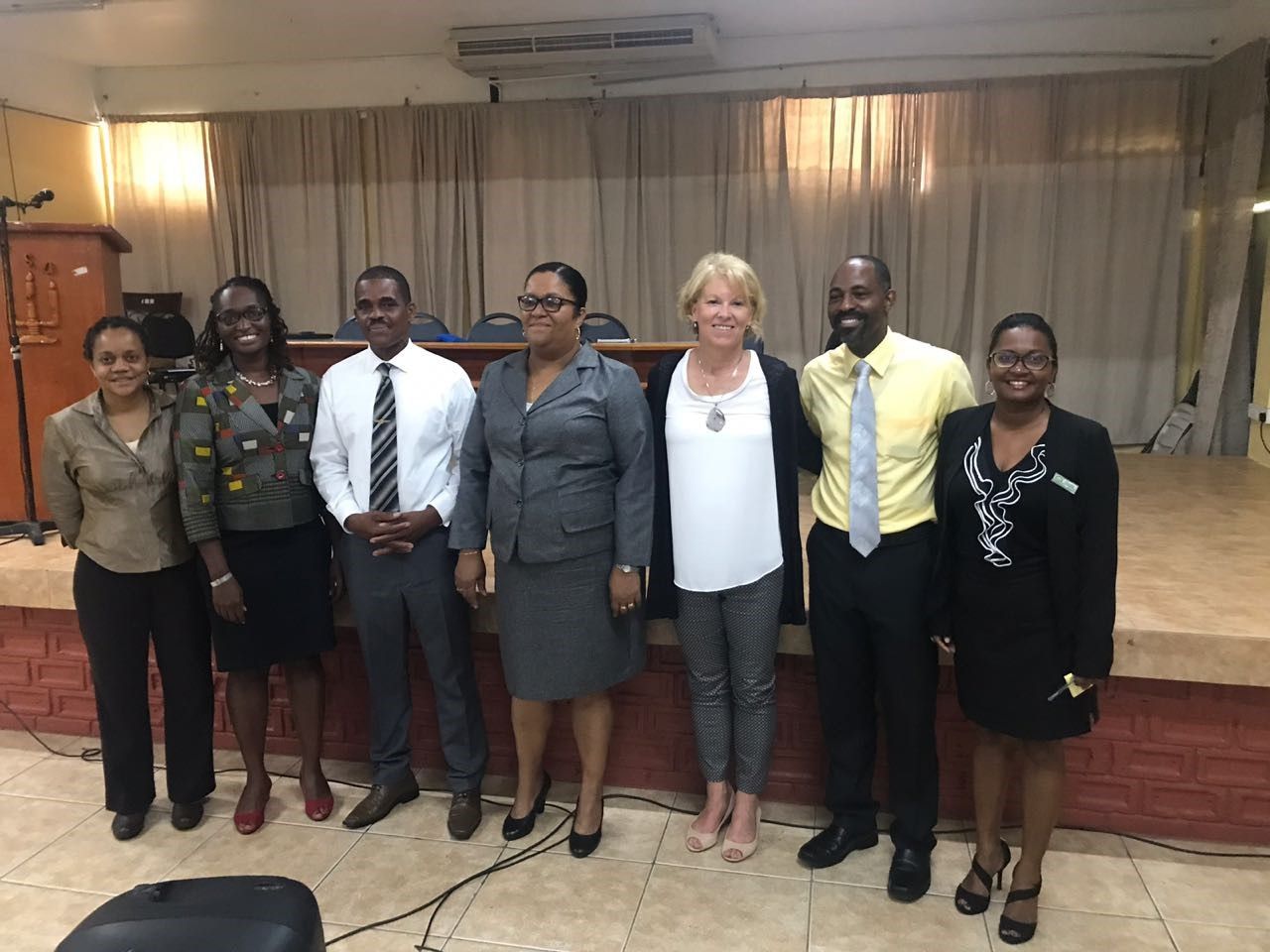Fifteen Dominican Schools Receive USAID Reading Enhancement Grants
OECS/USAID Joint Media Release
Fifteen schools in Dominica will benefit from a US$36,000 grant to implement projects that improve the reading levels of learners of Grades K-3 under the United States Agency for International Development’s (USAID) Early Learners Programme (ELP), implemented in partnership with the Organisation of Eastern Caribbean States (OECS).
Through the Special Grant for Sustainable Reading Enhancement Initiative, schools will receive individual grants value up to US$2,400 (XCD$6,500). The grant is part of the Enhancing School Improvement Component of the ELP that provides school-based teams with the opportunity to develop innovative reading enhancement programmes. In the case of Dominica, these special grants are also intended to provide support to the schools that experienced losses as a result of Hurricane Maria.
On 2nd July, 2018, a ceremony was held in Dominica to commemorate the grants that will be awarded to the 15 beneficiary schools. Chief Education Officer, Ms. Melena Fontaine, expressed her appreciation for the United States Government’s support by observing that,
“without the funding support from the U.S. Agency for International Development, we would not have accomplished as much as we have in the areas noted, and we therefore continue to say thank you on behalf of the children of Dominica.”
In addressing the ceremony, USAID Eastern and Southern Caribbean’s Education Development Officer, Simone Brown, noted that through the ELP, USAID collaborates with the OECS to support 58 schools, over 280 classrooms, and nearly 4200 students in Dominica to improve reading performance.
“The United States Government is pleased to contribute US$36,000 in school grants geared towards the improvement of early grade reading in 15 schools throughout Dominica. Part of the criteria for receiving the grant was participation in Innovation Lab. Through the Lab, teachers and principals will collaborate in planning for the use of the grants,”
Ms Brown explained noting that the mechanism will also help to spur creativity, foster teacher-led research, and develop problem-solving and project management skills.” The Innovation Lab was held on 2nd – 3rd July, 2018.
Participating schools in other OECS member states are employing innovative strategies for their reading programmes as well. Many schools use technology to teach reading through the use of tablets and smart televisions. Others engage students in drama, dance, music, and other visual forms and experiences to enhance their reading achievements. Some schools have also gone a step further to implement reading days and to create attractive reading rooms or reading corners.
The USAID/OECS Early Learners Programme continues to employ evidence-based measures to ensure that Every Learner Succeeds in the OECS Region.

 Ms. Natalie Johnson, ELP Programme Coordinator; Ms. Simone Brown, USAID Eastern and Southern Caribbean’s Education Development Officer; Mr. Petter Saint Jean, Hon. Minister for Education & Human Resource Development; Ms. Melena Fontaine, Chief Education Officer; Ms. Beth Charlton, ELP consultant; Mr. Robert Guiste, ELP National Focal Point; and Ms. Lisa Sargusingh-Terrance, Reading Specialist, ELP at the Early Learners Programme Innovation Lab held in Roseau, Dominica.
Ms. Natalie Johnson, ELP Programme Coordinator; Ms. Simone Brown, USAID Eastern and Southern Caribbean’s Education Development Officer; Mr. Petter Saint Jean, Hon. Minister for Education & Human Resource Development; Ms. Melena Fontaine, Chief Education Officer; Ms. Beth Charlton, ELP consultant; Mr. Robert Guiste, ELP National Focal Point; and Ms. Lisa Sargusingh-Terrance, Reading Specialist, ELP at the Early Learners Programme Innovation Lab held in Roseau, Dominica.
